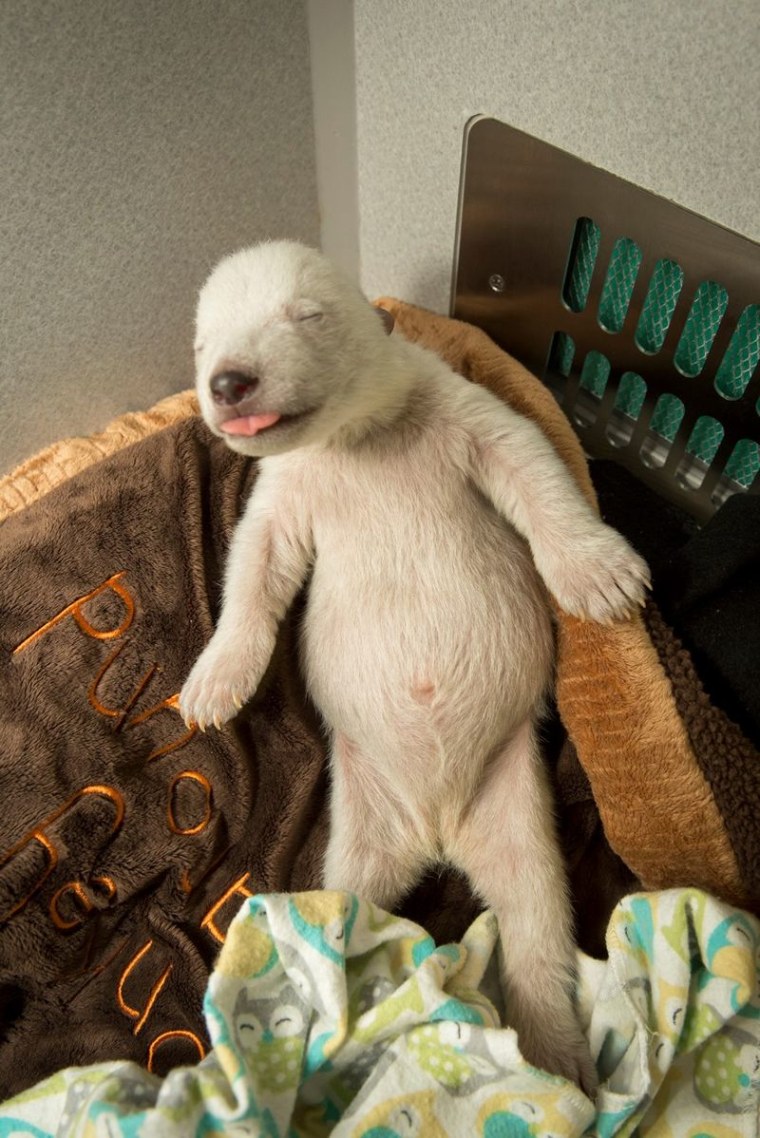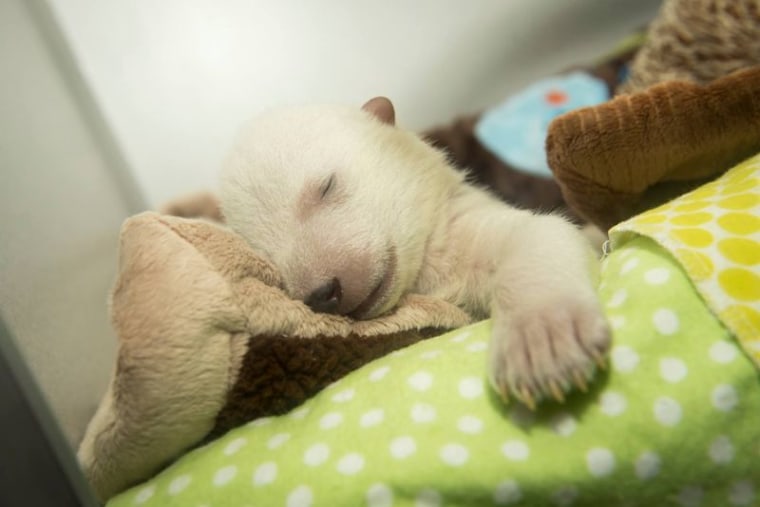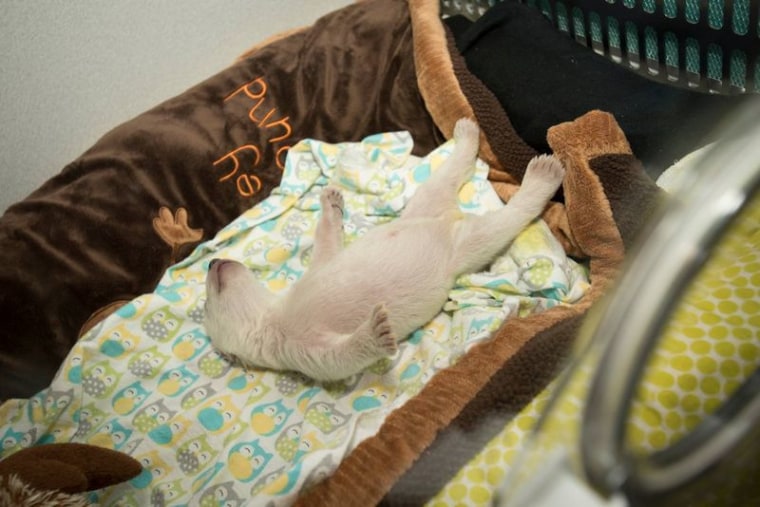The polar bear cub at Columbus Zoo and Aquarium is now a 1-month-old!
Two cubs were born Nov. 6 at the Ohio zoo, and animal care staff first observed new mom, Aurora, caring for the newborns. However, despite her efforts, only one cub survived.

Initially, Aurora was caring for her surviving cub, and the Columbus Zoo animal team, in conjunction with recommendations from other polar bear breeding facilities, made the decision not to intervene. Polar bear cubs are difficult to hand rear, and disrupting Aurora’s maternal care was not advised.

Unfortunately, the surviving cub had to be pulled from the den by the zoo’s animal care staff after Aurora began taking breaks from looking after her cub. When these breaks continued throughout the day and became longer, the zoo’s staff made the decision to remove the cub from the den and began to hand rear the newborn.

A little over one month later, the cub is doing well. The hand-rearing team stays with her 24 hours each day, and she is feeding every three hours. The cub is growing at a rapid pace, and as of last week, she was 14.25 inches from the end of her snout to the tip of her tail.
She continues to gain weight and keepers are anxiously waiting for her eyes to open, which should happen very soon. The care staff are taking the approach of "one day at a time," and adjusting to her daily needs.

Polar bears are native to the circumpolar north, including the United States (Alaska), Canada, Russia, Norway and Denmark (Greenland). They are at the top of the Arctic food chain and primarily eat seals. Polar bear populations are declining due to the disappearance of sea ice, and experts estimate that only 20,000 to 25,000 polar bears are left in the wild. Some scientists believe if the warming trend continues, two-thirds of the polar bear population could disappear by the year 2050. They are currently classified as "vulnerable" on the IUCN Red List.